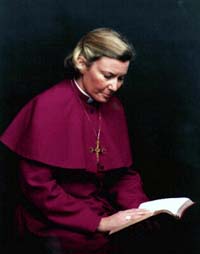This is so great. Thanks to Evan for sharing.
"The Christmas celebrations will certainly remain, and will certainly survive any attempt by modern artists, idealists, or neo-pagans to substitute anything else for them. For the truth is that there is an alliance between religion and real fun, of which the modern thinkers have never got the key, and which they are quite unable to criticize or to destroy.
"All Socialist Utopias, all new Pagan Paradises, promised in this age to mankind have all one horrible fault. They are all dignified. [...] But being undignified is the essence of all real happiness, whether before God or man. Hilarity involves humility; nay, it involves humiliation. [...] Religion is much nearer to riotous happiness than it is to the detached and temperate types of happiness in which gentlemen and philosophers find their peace. Religion and riot are very near, as the history of all religions proves.
"Riot means being a rotter; and religion means knowing you are a rotter. Somebody said, and it has often been quoted: 'Be good and you will be happy; but you will not have a jolly time.' The epigram is witty, but it is profoundly mistaken in its estimate of the truth of human nature. I should be inclined to say that the truth is exactly the reverse. Be good and you will have a jolly time; but you will not be happy. If you have a good heart you will always have some lightness of heart; you will always have the power of enjoying special human feasts, and positive human good news. But the heart which is there to be lightened will also be there to be hurt; and really if you only want to be happy, to be steadily and stupidly happy like the animals, it may be well worth your while not to have a heart at all.
"Fortunately, however, being happy is not so important as having a jolly time. Philosophers are happy; saints have a jolly time. The important thing in life is not to keep a steady system of pleasure and composure (which can be done quite well by hardening one's heart or thickening one's head), but to keep alive in oneself the immortal power of astonishment and laughter, and a kind of young reverence. This is why religion always insists on special days like Christmas, while philosophy always tends to despise them.

"Religion is interested not in whether a man is happy, but whether he is still alive, whether he can still react in a normal way to new things, whether he blinks in a blinding light or laughs when he is tickled. That is the best of Christmas, that it is a startling and disturbing happiness; it is an uncomfortable comfort. The Christmas customs destroy the human habits.
"And while customs are generally unselfish, habits are nearly always selfish. The object of a religious festival is, as I have said, to find out if a happy man is still alive. A man can smile when he is dead. Composure, resignation, and the most exquisite good manners are, so to speak, the strong points of corpses. There is only one way in which you can test his real vitality, and that is by a special festival. Explode crackers in his ear, and see if he jumps. Prick him with holly, and see if he feels it. If not, he is dead, or, as he would put it, is 'living the higher life.'"
--G.K. Chesterton, The Illustrated London News, 11 January 1908.







 ough not all) of us are "liberals" on the "hot-button" issues of women in the priesthood, and same-sex partnerships. But we also take the Creeds seriously and hold firm to Nicene and Trinitarian orthodoxy. We have a high view of the sacraments, and believe in the Real Presence and apostolic succession. We're waiting for the Baby Boomers to kick the bucket so that we don't have to listen to them tell themselves how "inaccessible" we find the Book of Common Prayer. Then we can bury their tie-die stoles with them and crack out the maniples and birettas. I don't mean to be overly crass: the pendulum is swinging the other way, and honouring the example of those who came immediately before us doesn't necessitate that we mimic them when we come to assume positions of Church leadership.
ough not all) of us are "liberals" on the "hot-button" issues of women in the priesthood, and same-sex partnerships. But we also take the Creeds seriously and hold firm to Nicene and Trinitarian orthodoxy. We have a high view of the sacraments, and believe in the Real Presence and apostolic succession. We're waiting for the Baby Boomers to kick the bucket so that we don't have to listen to them tell themselves how "inaccessible" we find the Book of Common Prayer. Then we can bury their tie-die stoles with them and crack out the maniples and birettas. I don't mean to be overly crass: the pendulum is swinging the other way, and honouring the example of those who came immediately before us doesn't necessitate that we mimic them when we come to assume positions of Church leadership.


